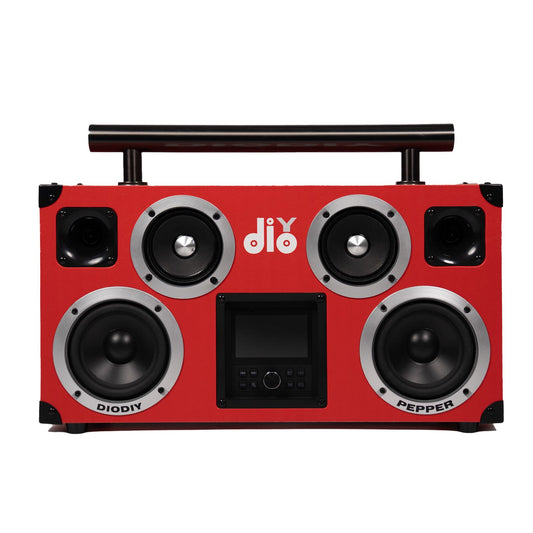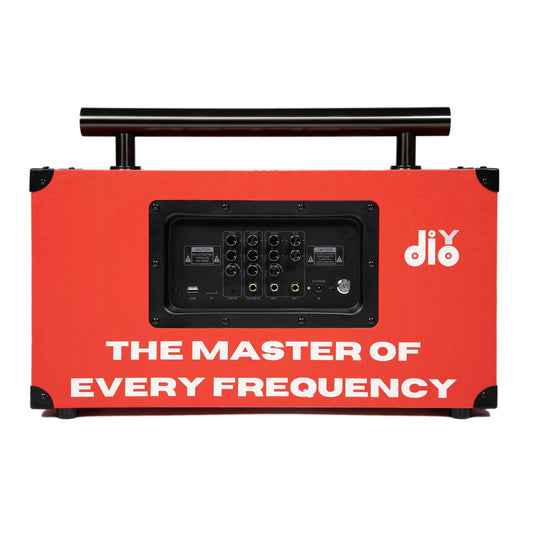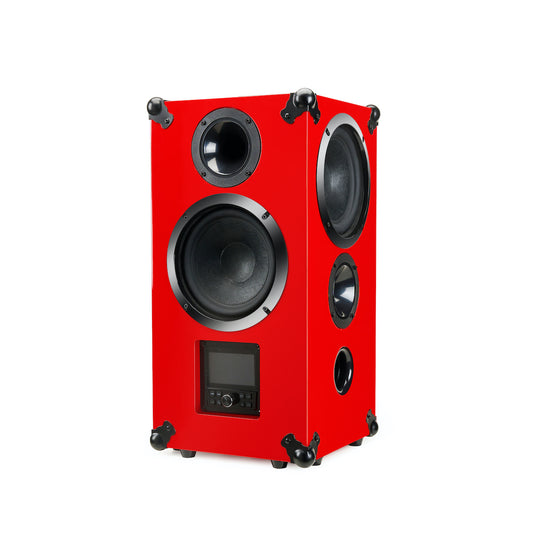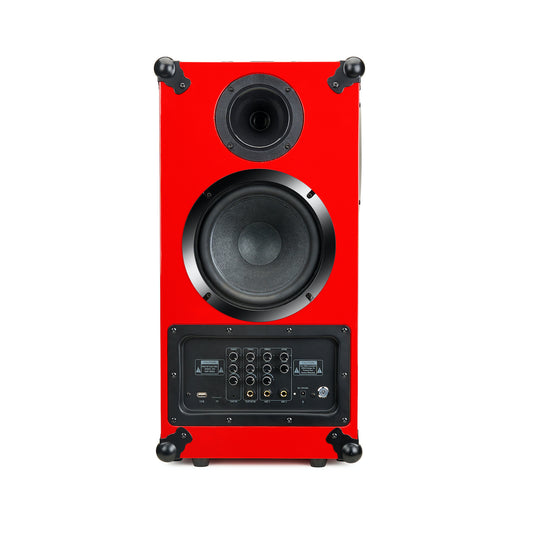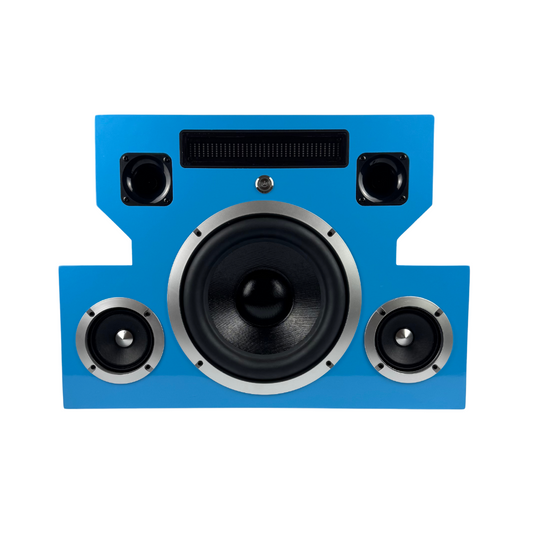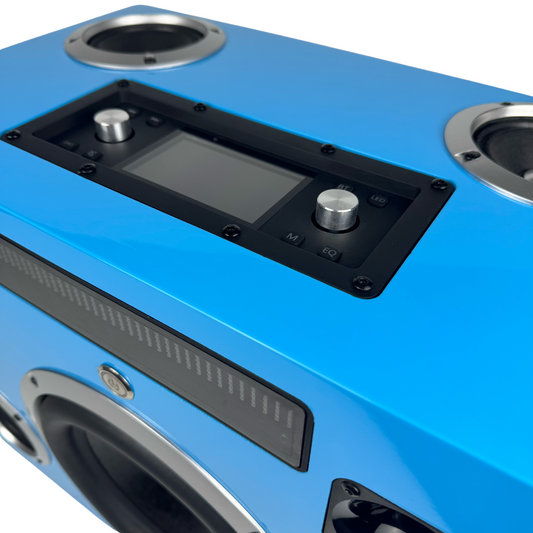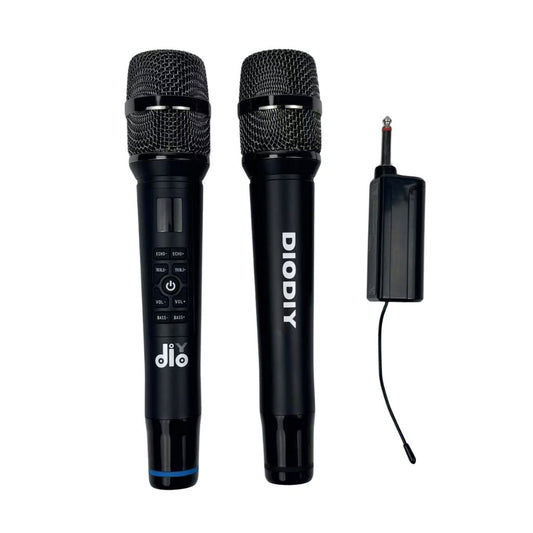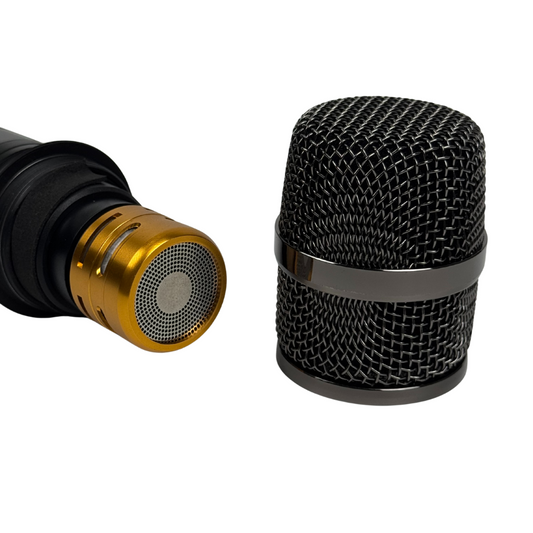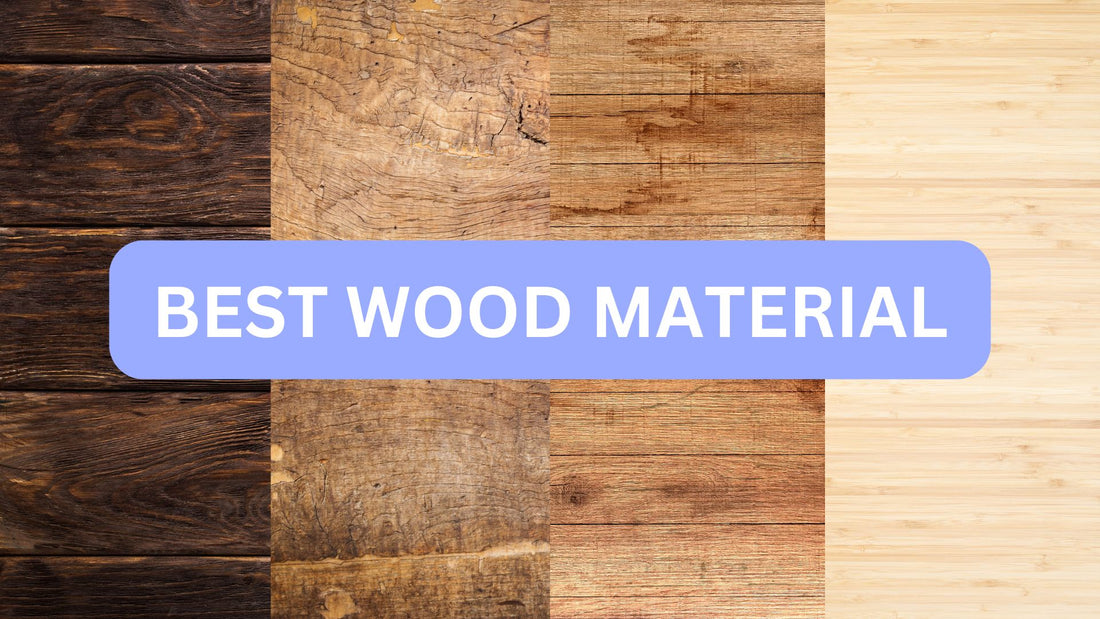
What Are the Best Wood Materials for a Custom Speaker Box?
Share
In the world of speaker construction, plastic is the most common material used in mass-produced consumer speakers due to its low cost and ease of manufacturing. However, when it comes to custom speaker projects, wood is by far the most popular material of choice. Wood is favored for its superior acoustic properties, durability, and aesthetic appeal, making it an ideal material for those looking to create high-quality speakers with an unparalleled music experience. The type of wood used can greatly influence the sound performance of the speaker, from bass response to overall clarity. Curious about what material can be used for a speaker enclosure? Check out this blog: Choosing the Right Enclosure for Your Custom Speaker: A Complete Guide.
In this blog, we’ll explore the different wood options—Poplar, Solid Wood, MDF, and Plywood—and how they affect the sound and build quality of a custom speaker box.
The Role of Wood in Speaker Enclosures
Before diving into the specific types of wood, it’s important to understand why the choice of wood matters in the first place. The material of the speaker box plays a key role in how sound is produced and how vibrations are managed. A well-designed and properly chosen wood material can enhance sound quality by reducing unwanted vibrations, improving resonance, and contributing to the overall sound profile of the system.
The primary goals when selecting wood for a speaker box are to:
- Minimize resonance: Poor material choices can cause the speaker box to vibrate, creating unwanted noise and distortion.
- Enhance sound quality: The material can either add warmth, clarity, or other desirable characteristics to the sound.
- Ensure durability: The speaker box needs to withstand the movement of air and pressure produced by the drivers over time.
Now, let’s break down the most common wood materials used in custom speaker enclosures.
1. Poplar Wood
Poplar wood is a soft hardwood that is gaining popularity in the construction of custom speaker boxes. While it may not be as dense or heavy as other wood types, it strikes a balance between durability and acoustic performance, making it an excellent choice for speakers that prioritize clarity and enrichment in sound.
Why Poplar Wood Works for Custom Speakers:
- Clarity in Sound: One of the main benefits of poplar wood is its ability to produce sound with a high degree of clarity. The material’s natural properties reduce resonance within the enclosure, allowing the sound to remain crisp and clean. This makes poplar ideal for listeners who want to enjoy detailed, well-defined audio.
- Enrichment of Sound: While clarity is a strong point, poplar also enriches the sound, adding a certain warmth and gorgeous tone, making it great for music that demands a rich audio profile.
- Lightweight Yet Durable: Although poplar wood is relatively lightweight compared to some other hardwoods, it is still durable enough for use in custom speaker enclosures. It offers a good combination of strength and acoustic performance without adding unnecessary weight to the setup.
Drawbacks of Poplar Wood:
- Limited Bass Response: Poplar wood doesn’t enhance bass as much as denser woods, which means it may not be the ideal choice if deep bass is a priority in your custom speaker system.
- Softness: As a softer wood, poplar may be prone to dents or damage, particularly if the speaker box is moved around frequently or exposed to impact.
Overall, poplar wood is a solid choice for those who value clarity and gorgeous sound reproduction, particularly for music that demands detail and nuance.

2. Solid Wood
Solid wood is another highly regarded option for custom speaker boxes, especially for those who want to invest in premium materials. As the name suggests, solid wood refers to natural wood that has not been engineered or combined with other materials. Solid wood offers a level of craftsmanship and natural beauty that is unmatched by many other materials, but its performance in speaker enclosures can vary depending on the specific type of wood used.
Why Solid Wood Works for Custom Speakers:
- High Accuracy: Solid wood is known for producing sound with great accuracy, particularly in the lower and mid-range frequencies. This makes it ideal for audiophiles who want their music reproduced as faithfully as possible.
- Aesthetic Appeal: One of the primary reasons people choose solid wood is for its visual appeal. It brings a sense of natural beauty and craftsmanship to the speaker box, adding value to the overall design of the system.
Drawbacks of Solid Wood:
- Cost: Solid wood is one of the most expensive materials available for custom speaker enclosures, making it less accessible for budget-conscious builders.
- Not Ideal for Clarity: Despite its high accuracy, solid wood may not always provide the level of clarity found in materials like poplar or MDF. The denser nature of the wood can sometimes introduce unwanted resonance or a "boomy" quality in the sound.
- Sensitivity to Temperature and Humidity: Because solid wood is a natural material, it can be sensitive to changes in temperature and humidity, which may cause it to warp or crack over time if not properly cared for.
In summary, solid wood is an excellent choice for those who value accuracy and aesthetic appeal, but it may not always deliver the highest levels of clarity, and its high cost can be prohibitive.
3. MDF (Medium-Density Fiberboard)
MDF (Medium-density fiberboard) is one of the most commonly used materials in speaker box construction due to its affordability and ease of use. MDF is an engineered wood product made by breaking down hardwood or softwood residuals into fibers, which are then combined with wax and resin to form panels.
Why MDF Works for Custom Speakers:
- Good Bass Performance: MDF is well known for its ability to enhance bass response, making it a popular choice for speaker boxes where powerful low-end sound is important. Its density helps contain and project low frequencies effectively.
- Affordability: MDF is significantly cheaper than solid wood or other premium wood types, making it an attractive option for those building custom speakers on a budget.
- Smooth Surface: MDF provides a smooth, even surface, making it easier to work with and paint compared to natural wood, which can have knots and grain patterns.
Drawbacks of MDF:
- Not Ideal for Midrange and Treble: While MDF can produce impressive bass, it doesn’t perform as well in the midrange and treble frequencies, leading to a lack of clarity in these areas. The sound may feel a bit muffled or less defined compared to other wood types.
- Lack of Durability: MDF is not as strong or durable as solid wood or plywood. It’s more susceptible to damage from moisture and can easily swell or warp if exposed to damp environments.
While MDF can produce rich bass and is budget-friendly, it falls short in delivering the high clarity needed for the best possible midrange and treble performance in a custom speaker system.

4. Plywood
Plywood is another engineered wood product made by gluing together thin layers (plies) of wood veneer. It’s often used in speaker box construction due to its strength and versatility, but its sound performance is generally seen as average compared to other wood options.
Why Plywood Works for Custom Speakers:
- Hard and Durable: Plywood is a tough, durable material that can withstand the stresses placed on a speaker box. Its strength makes it ideal for larger speakers or enclosures that need to be moved frequently.
- Consistent Performance: While plywood doesn’t excel in any particular area of sound reproduction, it provides a consistent, reliable performance. It neither boosts nor dampens sound frequencies significantly, resulting in a neutral performance.
Drawbacks of Plywood:
- Average Sound Performance: Plywood tends to perform neither particularly well nor particularly poorly when it comes to sound. While it doesn’t introduce excessive distortion, it also doesn’t offer the level of clarity or bass response that other materials like MDF or poplar wood provide.
- Heavier: Plywood can be quite heavy, making it less ideal for smaller, portable speaker setups.
Plywood is a safe and durable option for custom speaker boxes, but it won’t deliver the high-quality sound or clarity offered by other materials like poplar or MDF.
Conclusion: Choosing the Best Wood for Your Custom Speaker Box
When it comes to selecting the best wood material for your custom speaker box, there is no one-size-fits-all answer. The choice depends on your specific sound preferences, budget, and design goals. Here’s a quick recap of each material:
- Poplar Wood: Offers great clarity and sound enrichment, making it ideal for audiophiles seeking a detailed, nuanced listening experience. It’s lightweight and durable, but lacks deep bass performance.
- Solid Wood: Provides high accuracy in sound reproduction, especially in the low and midrange frequencies, but may introduce resonance and comes with a high price tag. Perfect for those who value aesthetics and craftsmanship.
- MDF: Excellent for boosting bass response and highly affordable, but lacks the clarity needed for midrange and treble performance. A good choice for those looking to enhance the low end without breaking the bank.
- Plywood: Durable and hard, plywood offers consistent but average sound performance, making it a reliable choice for durable speaker enclosures, though it won’t excel in any one area of sound.
Ultimately, the right wood material for your custom speaker will depend on whether you prioritize clarity, bass, durability, or cost. By understanding the unique characteristics of each wood material, you can make a more informed decision that suits your specific custom speaker needs.
If you prioritize clarity and detail, especially for genres that require precision like classical or acoustic music, poplar wood may be your best option. For those who value high accuracy in sound reproduction, especially in the low and midrange frequencies, and don’t mind investing more, solid wood can be a premium choice. However, if you’re looking for a more budget-friendly material that enhances bass performance, MDF is a solid contender. Lastly, plywood is ideal if you’re seeking a durable, reliable material that offers a balanced, neutral sound and can withstand heavy use.
Final Thoughts on Wood Choices for Custom Speaker Boxes
Each wood material—whether it's Poplar, Solid Wood, MDF, or Plywood—has its strengths and weaknesses when it comes to custom speaker box construction. By understanding the characteristics of these materials and how they influence sound performance, you can build a speaker system that aligns with your desired audio quality and listening experience.
Remember, a good speaker box isn’t just about aesthetics or durability—it’s about finding the right balance between the material’s physical properties and the acoustic performance you’re aiming for. Whether you prioritize rich bass, sound clarity, or durability, selecting the right wood can significantly enhance the overall quality of your custom speaker system.
If you’re ready to take the next step in building your own custom speakers or want more advice on which materials are best suited for your project, feel free to contact us. We’re here to help you choose the right wood material and ensure your speakers deliver the high-quality, unparalleled audio experience you deserve.

